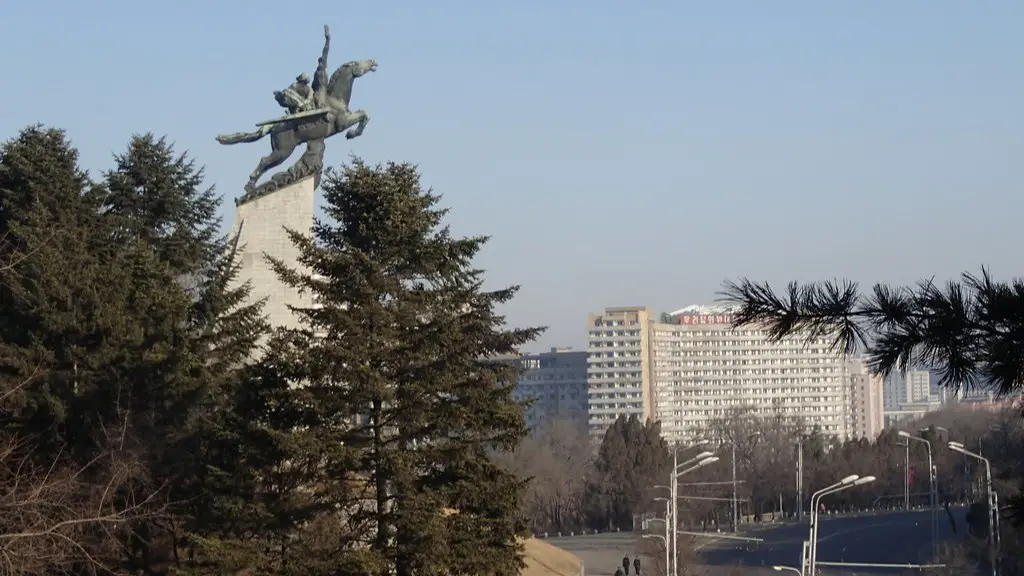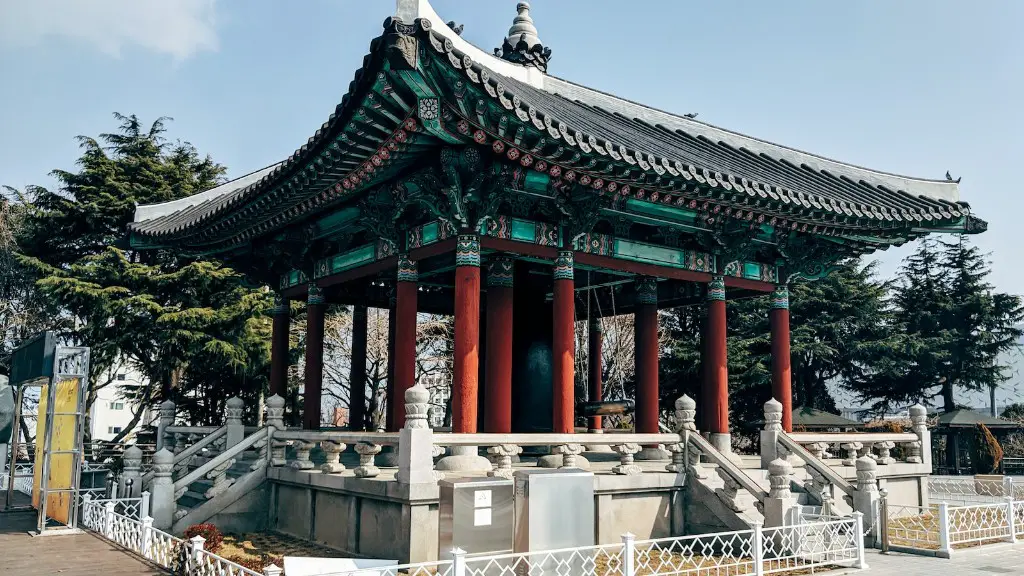Introduction
North Korea is a country that is shrouded in darkness and fear due to its fear-mongering tactics, strict rule and oppressive regime. The country has also been accused of carrying out unfair trials, where those accused are not able to appeal or contest their rulings. Of all the punishments that can be handed out in North Korea, one of the most severe is that of 15 years hard labour. This form of punishment is typically used for those who have committed serious crimes, and it can be a life-changing sentence for those who receive it. In this article, we will discuss what exactly hard labour in North Korea means, what types of crimes are punishable by this sentence and how it affects those who are sentenced with it.
What is Hard Labour in North Korea
Hard labour in North Korea is a sentence that is typically given to those who are accused of committing serious crimes or being part of a political opposition. Those sentenced to hard labour are sent to labour camps, also known as kwanliso, where they are required to work long hours in potentially ‘sub-human’ conditions for a minimum of 15 years. Those sentenced to hard labour are not able to appeal the ruling and are often not given any leniency for their punishment.
The labour camps in North Korea are extremely cruel and inhumane, and those sentenced to hard labour are often exposed to extreme conditions. In some cases, they are subjected to beatings and torture, denied access to food or medical attention and are not given any rights or protection while they are in the camps. This form of punishment is in direct opposition to international standards, making North Korea an outlier in terms of human rights.
Types of Crimes Punishable with Hard Labour
The crimes that can be punished by 15 years of hard labour in North Korea vary, but some of the most common include treason, sedition and espionage. Those accused of these crimes are sent to prison and then labour camps where they are subjected to labour intensive tasks. In some cases, the labour can be physically demanding and the inmates may be expected to work long hours in extreme heat or cold. In other cases, the labour could be more mentally demanding with prisoners having to solve puzzles or answer questions in order to complete the task.
In some cases, those who are sentenced to hard labour may also be subjected to ‘guilt by association’ punishments. This means that if a prisoner is accused of a crime, even if they are found not guilty, they can still be sentenced to hard labour if they are believed to have been associated with someone who was guilty. This is a form of punishment that has been criticized by human rights groups, as it goes against the right to a fair trial.
Effects of Hard Labour
The effects of being sentenced to 15 years of hard labour in North Korea can be devastating. As mentioned, those sentenced to this punishment are often subjected to inhumane conditions, without access to food, medical attention or any rights. This means that they are often unable to fight their sentence, and are forced to endure the punishment for the duration of their sentence.
In addition, the physical and mental toll that hard labour can have on the inmates is immense. Often, the inmates are overworked and undernourished, leading to extreme exhaustion and poor physical health. In addition, due to the harsh conditions and lack of mental stimulation, inmates may also suffer from depression and anxiety that can have a long lasting effect even after they are released from prison.
International Criticism
The use of hard labour in North Korea has been widely criticized by international organizations such as the United Nations. It has been condemned as a form of cruel and inhumane punishment, and is in direct violation of international standards. The UN has called on the North Korean government to revise its punishments and the laws that give rise to it.
However, North Korea has so far failed to respond to these criticisms. The country continues to use sentences such as 15 years hard labour to punish those who are guilty of serious crimes without taking into account human rights or international standards. This has caused further international condemnation and pressure on the country to revise its laws and punishments.
Rehabilitation and Reintegration Programs
Despite the use of hard labour in North Korea, there have been some efforts to rehabilitate those who have been sentenced to this punishment. In recent years, the country has attempted to set up rehabilitation and reintegration programs to help former inmates reintegrate back into society after they are released from prison. These programs focus on teaching inmates basic skills such as job readiness, communication and problem solving in order to help them reintegrate into society.
These programs have been welcomed by human rights groups and have been praised as an important first step in tackling the issue of hard labour in North Korea. While the programs are not perfect, they do show a willingness by the North Korean government to address the issue and provide some form of relief to those who have been sentenced to this harsh punishment.
Legal Recognition of Hard Labour
Despite the international criticism it has faced, hard labour in North Korea has been legally recognized in certain cases. In some cases, North Korea has legally ratified the use of hard labour in order to punish those who have committed serious crimes. In other cases, the country has ratified the use of hard labour as an alternative to imprisonment for those who have committed minor offences.
Although this type of legal recognition has been condemned by human rights groups, it does show that North Korea is willing to accept some form of legal recognition for hard labour in certain cases. This is a slight positive in terms of international standards, as those who are accused of crimes in North Korea will at least have the chance of being tried in court or facing some form of legal recourse.
Public Discourse About Hard Labour
The use of hard labour in North Korea has been a prominent issue in public discourse for many years due to its harsh nature. Human rights groups have been vocal in their criticism of the punishment, calling for its immediate abolition and for legal reform in the country. This has led to a greater awareness of the issue and an increased interest in the plight of those who have been sentenced to this punishment.
In addition, the media has played an important role in bringing attention to the issue of hard labour in North Korea. By highlighting stories of injustice, the media has been able to shine a light on the issue and bring it to the attention of the public. This has led to an increased understanding of the extent of this punishment and the human rights violations associated with it.
Conclusion
15 years of hard labour in North Korea is one of the harshest punishments that can be handed out by the country’s authorities. This sentence is typically used for those who are convicted of serious crimes or are accused of political opposition and can have devastating effects on those who receive it. There have been attempts by international organizations and human rights groups to abolish this punishment, but North Korea has yet to respond.
Despite this, there have been some small efforts to rehabilitate and reintegrate those who have been sentenced to this punishment, as well as legal recognition of the punishment in certain cases. All of these attempts have been met with criticism, but have shown that there is a willingness to address the issue of hard labour in North Korea. It is essential that more is done to address this issue to ensure that no one is subjected to this cruel and inhumane punishment.


